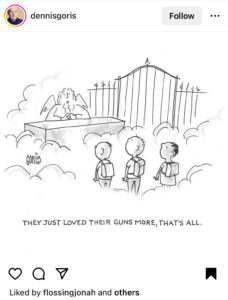Letitia Elizabeth Landon’s poem “The Factory” describes the state of childhood in England amidst the mounting issue of child labor, in direct address to the country in accusatory stance towards their lack of sympathetic legislature. The use of second person “yon” in the first line of the poem, “There rests a shade above yon town” (1) immediately alerts the reader that the speaker is addressing someone specific, other than the general reader. At the end of the poem, Landon closes with the address, “Oh England, though thy tribute waves/Proclaim thee great and free, /While those small children pine like slaves/There is a curse on thee!” (89-92). Her invocation of “England” itself makes it clear that the entire poem is an accusatory address towards the faulty party, whose inaction directly results in childhood death–a theme continuous throughout the poem. Landon invokes the biblical character Moloch as well, “We read of Moloch’s sacrifice, /We sicken at the name, /And seem to hear the infant cries– /And yet we do the same!” (21-24). Moloch is associated with human sacrifice; thus, this allusion demonstrates Landon’s belief that England is sacrificing children to the labor force for the sake of economic productivity. She also highlights their hypocrisy within religion, as they are acting in what the Bible has already represented, and what they have acknowledged, as a sinful manner.
As I was clicking through stories on my Instagram since Monday of this week, I was unfortunately met with current uses of Landon’s rhetoric, but this time, speaking against gun violence and school shootings in the US. There are many eerily similarities that can be drawn between elements of the “The Factory” and posts that are circulating on social media to promote sympathy and action towards stricter gun laws. Generally speaking, the access and popularity of written circulations during the Victorian era is comparable to that of information diffused through social media in present day. Essentially everyone in the general public sees and reacts to this messaging, although it may not actually reach or affect the most powerful audience: the lawmakers. I’ve attached a cartoon that I think aligns well with the elements of “The Factory”. Within the caption “They just loved their guns more, that’s all”, I perceive “they” to reference American lawmakers and those who prioritize their gun rights in the US, suggesting a similar sacrifice of children-for-national-values that Landon alludes to in her work. Childhood death and popular religion are present in the cartoon as well, as the children are being addressed by “God” at what appears to be the gates of Heaven. The cartoon God’s dissociation from the choices of the US in his address to the children demonstrates an argument similar to that of Landon, a divergence from religion which supposedly guides many lawmakers in the country.
Although centuries apart, both “The Factory” and this Instagram political cartoon generate sympathy for children who are losing their lives–whether to labor or to violence, assert religious contradictions, and effectively reach a wide audience through their platform, in hopes of instigating social movement. I can only hope that child mortality due to gun violence becomes a vestige of the past for future consumers of such media, just as child labor in the Victorian era has for us as readers of “The Factory”.


I think this is a sad yet illuminating comparison between issues from the Victorian era and contemporary issues. I also just want to comment on the significance of the role of art as political commentary within both of these eras. Both Landon’s poem and the cartoon you have attached are pieces of art in their own ways, and they both seek to critique a part of society that is entrenched in politics. Perhaps their forms enable them to reach more people, to linger in the mind for longer, or to have a more visceral impact. Either way, the fact that art has been such a strong presence in political movements for generations validates it as a form of expression and protest.
In addition to the epidemic of gun violence, I think Landon’s poem remains resonant today for another reason: child labor is still very, very much a thing. The lifestyle of the 21st-century developed world is sustained by the barely-paid labor of children in the Global South. We’ve inherited our obsession with consumption from that very same 19th-century world Landon condemns, and accordingly, the exploitation necessary to prop up that level of consumption has stuck around. We’ve just outsourced it, making it less immediately present for us than for the Victorians. We need more Letitia Landons in the world.